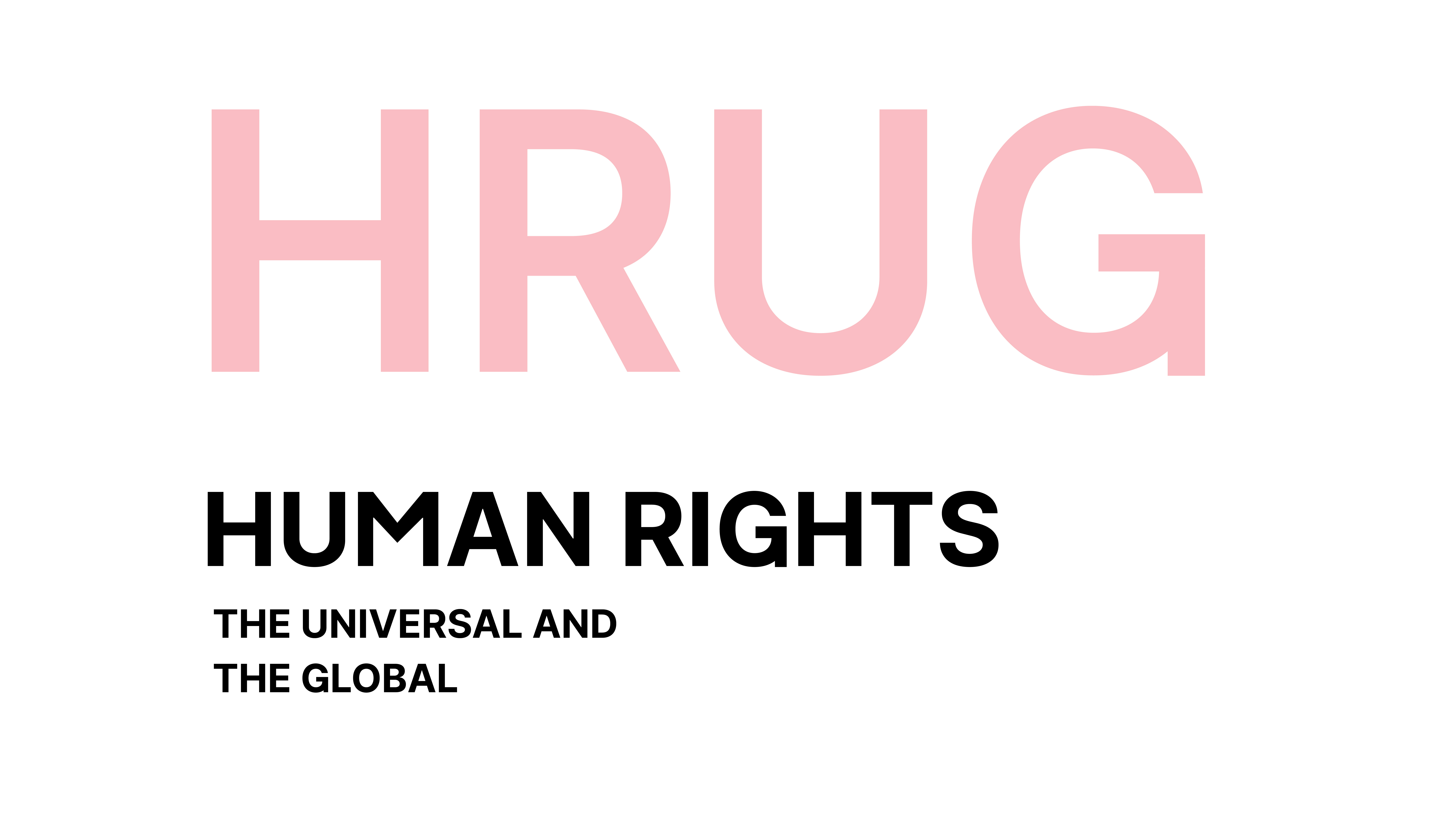If Trump would be left, he would be right? – Video Link
On November 29, 2024, the HRUG Regular Seminar on “If Trump would be left, he would be right?” was successfully held. The seminar was presented by Professor Peter Herrmann (a researcher of CSU Human Rights Center) and chaired by Joe Finnerty (a social policy analyst, School of Applied Social Studies, University College Cork, Republic of Ireland). Professor Mehmet Okyayuz (a professor of political science at Middle East Technical University, Turkey), Associate Professor Li Juan (a researcher of CSU Human Rights Center) and the Turkish scholar Tunahan Ali Usta participated in this discussion, which mainly focused on the rise of populist movements and their challenges to traditional democratic values and human rights.
Taking Trump’s victory as an example, Peter Herrmann deeply explored the connections among democracy, populism, fascism and other political concepts, and emphasized the vulnerability of democratic countries in the face of populism. He pointed out that the political situation in the United States, as well as Trump’s words and deeds, not only reflects the instability of the American political system, but also highlight deep-seated social problems. He compared the similarities and differences between the governance concepts of German liberals and Trump, and emphasized that populism can blur and erode existing moral and social standards, eventually leading to political extremism. Peter further stressed that it is necessary to recognize the social roots of this political tendency, namely, the growing polarization and inequality within the population. He believed that it is essential to re-examine populism and pay attention to the challenges posed by modern political movements under the influence of neoliberal ideas.
Subsequently, Peter Herrmann criticized the flaws in the current populist movements, namely, they failing to provide coherent solutions. He also discussed the important role of the media in shaping public perception and narrative, and warned of the danger of “dehumanizing” political opponents. He called for practical solutions and emphasized the need to address challenges such as social equality and immigration issues through global cooperation. A coherent policy approach is expected to mitigate the negative impacts of populist movements. Finally, he advocated for comprehensive and critical participation in politics to transcend individualism and single-response models.
Mehmet Okyayuz analyzed the different attitudes of the Western left towards Trump and Harris, believing that the Western left is overly focused on criticizing Trump while ignoring the problems of the Democrats represented by Harris. In the view of Western media, Harris has been misrepresented as a proponent of individual liberalism. In fact, behind her individual liberalism discourse, what is being promoted is the imperialist American Dream. In addition, Professor Mehmet talked about the upcoming German elections and expressed his concern about Germany’s immigration policy.
Joe Finnerty proposed that the meaning of populism is currently expanding continuously. Populist regimes usually highlight issues such as immigration and national identity, and closely tie these issues to ethnic nationalism. He noted that the current populist movement is no longer confined to the geographical boundaries of the West. Joe Finnerty also noticed the feature of incoherence in populist policies mentioned by Peter and hoped that Peter could provide more explanations on this point.
Peter Herrmann dug out the complexity of politics and elections, especially the influence of populism and nationalism on political voting patterns. He asserted that many voters cast their votes not out of support for Trump, but out of dissatisfaction with the current political system and its operation. Peter explored how Trump skillfully used populist strategies to attract specific groups including industrialists and people in Puerto Rico, thus shaping his highly controversial yet distinctive political image. Finally, he underlined the importance of in-depth analysis of political issues and called for “taking a step back” in specific situations to gain a broader perspective and a more comprehensive understanding.
Tunahan Ali Usta maintained that Western left-wing political parties are gradually moving towards a compromise route, and social justice and equality are no longer the top priorities of these parties. He asked whether there are other feasible solutions to the common problem of economic development and social equality faced by each country. Peter Herrmann responded from a global perspective and contended that the development models of some countries are worth learning from, such as China’s Belt and Road Initiative. Finally, he underscored that the development models of all countries have their own soil for growth and cannot be completely copied or transplanted. But we should learn from the successful experiences of other countries and make local adjustments and innovations in light of the actual situation of our own country.
2024年11月29日,HRUG定期研讨会——“特朗普继续执政,这真的是‘正确’的选择吗?”主题会议顺利召开。本次会议由中南大学人权研究中心研究员Peter Herrmann教授主讲,由爱尔兰国立科克大学应用社会研究学院政策分析家Joe Finnerty主持。本次讨论主要围绕民粹主义运动的兴起及其对传统民主价值观和人权的挑战等议题展开,土耳其中东科技大学政治学教授Mehmet Okyayuz、中南大学人权研究中心研究员黎娟副教授以及土耳其学者Tunahan Ali Usta等人参与了此次讨论。
Peter Herrmann以特朗普胜选为例,深入探讨了民主、民粹主义以及法西斯主义等政治概念之间的联系,并强调了民主国家在民粹主义面前的脆弱性。他指出,美国的政治现状以及特朗普的言论、行为等不仅折射出美国当前政治制度的不稳定,更凸显了深层次的社会问题。他比较了德国自由主义者与特朗普执政理念的异同之处,并强调民粹主义会模糊和侵蚀现有的道德和社会标准,最终导致政治极端化。Peter进一步强调,必须认识到该政治倾向的社会根源,即人口内部日益加剧的两极分化和不平等现象。他表示,有必要重新审视民粹主义,并重视新自由主义思潮影响下的现代政治运动所带来的挑战。
随后,Peter Herrmann批评了当前民粹主义运动存在的缺陷,即它们未能提供连贯一致的解决方案。他还讨论了媒体在塑造公众认知和叙事方面所起的重要作用,并警告了将政治对手“非人化”的危险性。他呼吁采取切实可行的解决方案,并强调通过全球合作来解决社会平等、移民问题等挑战,同时主张以连贯的政策方法来减轻民粹主义运动带来的负面影响。最后,他倡导全面且批判性地参与政治,以超越个人主义和单一应对模式。
Mehmet Okyayuz分析了西方左翼对特朗普和哈里斯的不同态度,认为西方左翼过度专注于批评特朗普,却忽视了以哈里斯为代表的民主党人存在的问题。在西方媒体的视角里,哈里斯被错误地塑造为个人自由主义的拥护者。实际上,其个人自由主义话语的背后,宣扬的是具有帝国主义性质的美国梦。另外,Mehmet教授关注到了德国即将到来的大选,并表示了对德国移民政策的担忧。
Joe Finnerty认为,当前民粹主义的意涵正持续扩张,民粹主义政权通常强调移民和国家认同等议题,并将这些议题与族裔民族主义深度绑定。他指出,当前民粹主义运动已不局限于西方地理边界。Joe Finnerty还注意到了Peter所提到的民粹主义政策具有不连贯性的特征,希望Peter在这一点上做出更多说明。
Peter Herrmann深入剖析了政治与选举的错综复杂性,尤其是民粹主义和民族主义对政治投票模式的影响。他指出,众多选民的投票并非基于对特朗普的支持,而是出于对现行政治体制及其运行状况的不满。Peter探讨了特朗普如何巧妙运用民粹主义策略,以吸引实业家、波多黎各民众等特定群体,从而塑造了自己极具争议性却又鲜明的政治形象。最后,他强调了对政治问题进行深入分析的重要性,并呼吁在特定情境下不妨“后退一步”,以获得更广阔的视角和更全面的理解。 Tunahan Ali Usta认为,西方左翼政党正逐渐走向折中路线,社会公正与平等已不再是这些政党的优先议题。他提问道,对于经济发展与社会平等这一各国普遍面临的问题,是否存在其他可行的解决方案?Peter Herrmann回应指出,将视角拉向全球,我们会发现部分国家的发展模式值得借鉴,例如中国的“一带一路”倡议等。最后他强调,各国的发展模式有其自身生长的土壤,不能全盘复制或移植,但我们应当看到其他国家的成功经验,并结合本国实际情况,进行本土化调整和创新。
(Transcription: Daihe Wang, Yaxing Bai; Translation: Yaxing Bai)
